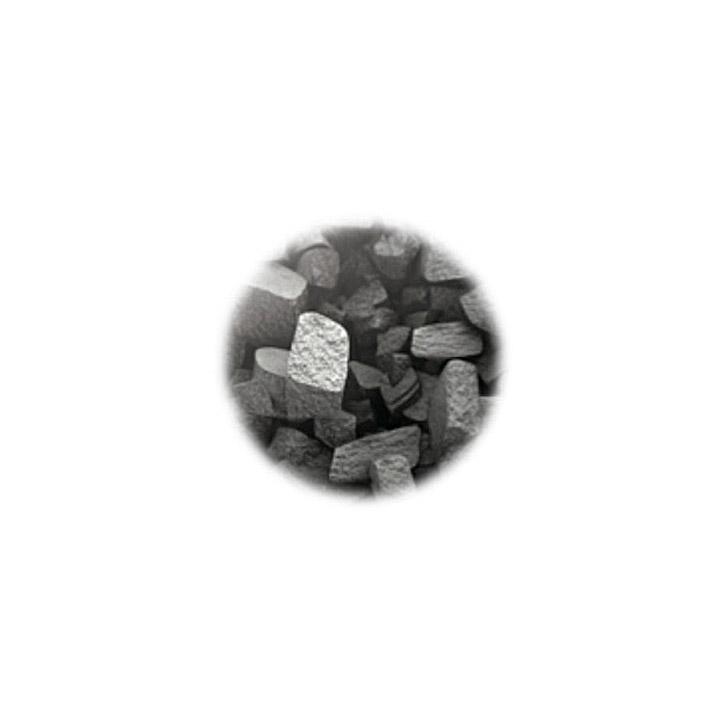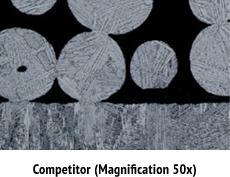3DMatrix®


3DMatrix®
DJO Surgical has chosen an innovative approach to an industry standard for porous coating on their implant. This coating consists of small, three-dimension (non-spherical) beads. The porous material is either commercially pure titanium or CoCr alloy, depending on the base substrate. The non-spherical shape of the beads provides more points of contact and a much rougher surface area.
- Features & Benefits
- Components
- References
Superior Surface Texture
 The 3DMatrix porous coating is much rougher and aggressive than spherical beads, providing for more bone apposition. In a canine study for bone ingrowth, 3Dmatrix porous coating outperformed spherical beads.2
The 3DMatrix porous coating is much rougher and aggressive than spherical beads, providing for more bone apposition. In a canine study for bone ingrowth, 3Dmatrix porous coating outperformed spherical beads.2
Aggressive Porous Coating
 The 3DMatrix has a thickness of 0.5mm (a minimum of two bead layers), bead size 180-850 microns, and pore size of 250-450 microns. The porosity volume represents 63.1%. The pore size of 100 to 500 microns has been shown to be optimal; for bone ingrowth.1,2
The 3DMatrix has a thickness of 0.5mm (a minimum of two bead layers), bead size 180-850 microns, and pore size of 250-450 microns. The porosity volume represents 63.1%. The pore size of 100 to 500 microns has been shown to be optimal; for bone ingrowth.1,2
Acetabular Options
The FMPTM Acetabular System offers a comprehensive line of Acetabular options to fit intraoperative needs and diverse patient anatomy.
Canine Bone Ingrowth Study
| Spherical Beads | 3DMatrix | |
|---|---|---|
| Interface sheer strength, MPa | 33.29 | 40.3 |
| Cortical bone apposition, % | 38.5 | 63.1 |
| Cancellous bone apposition, % | 13.6 | 22.0 |
3DMatrix porous coating is available on all of the following components:
- FMP Hemispherical & Flared acetabular shells
- FMP Revision acetabular shells
- Linear hip system
- Revelation & Revelation microMAX hip systems
- Foundation hip system
- 3DKnee
- Foundation knee system
- Reverse Shoulder Prosthesis
- Mont, MA, Hungerford, DS: Proximally coated ingrowth prostheses. A review. Clin Arthrop 344: 139-149, 1997.
- Data on file at DJO Surgical.